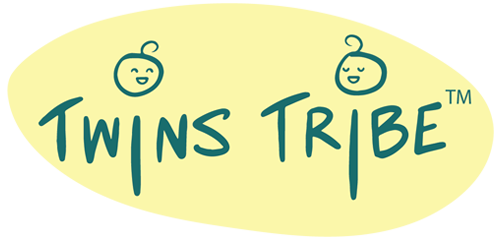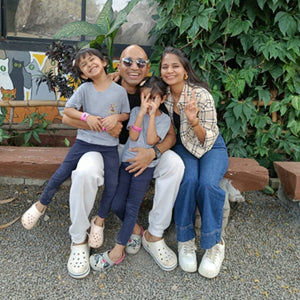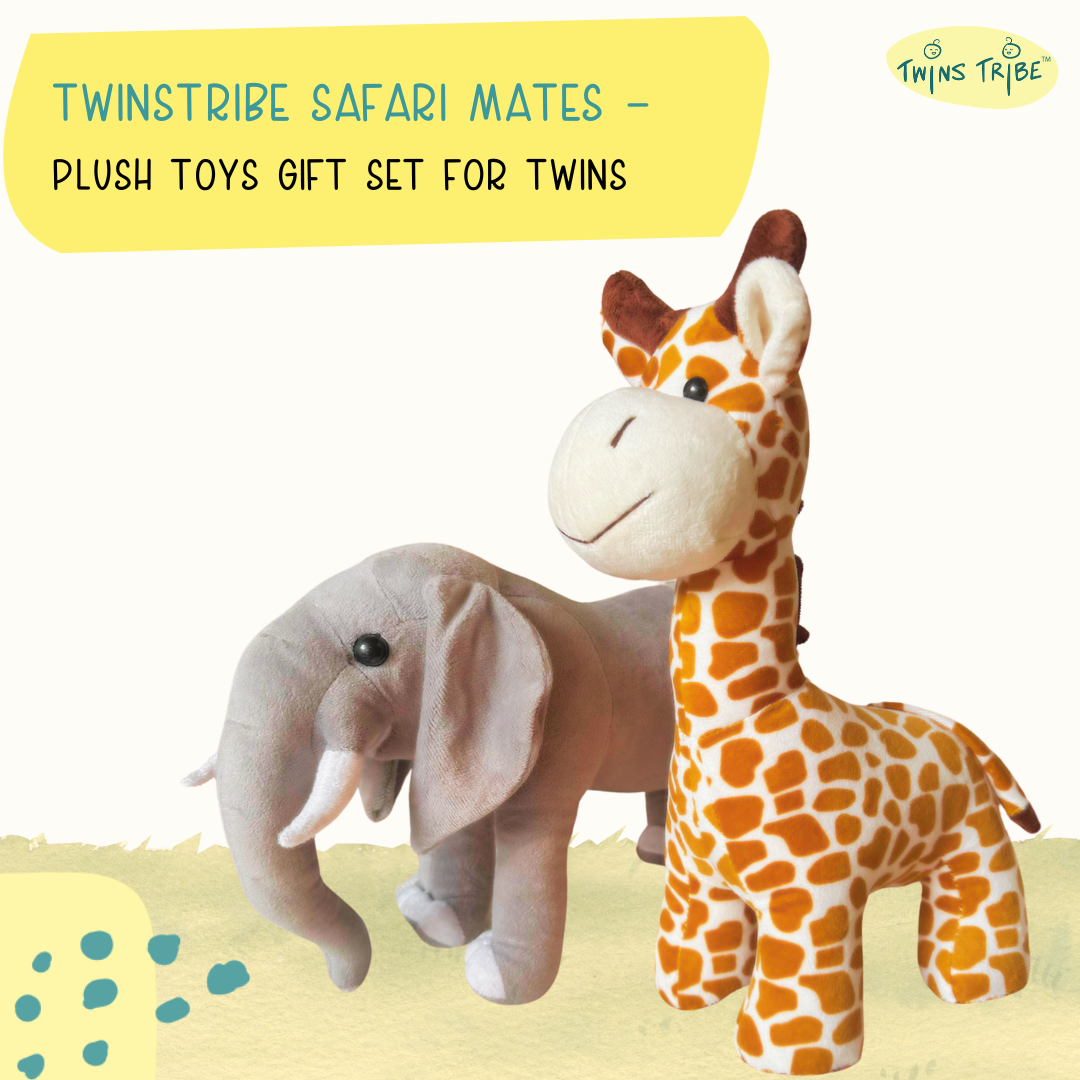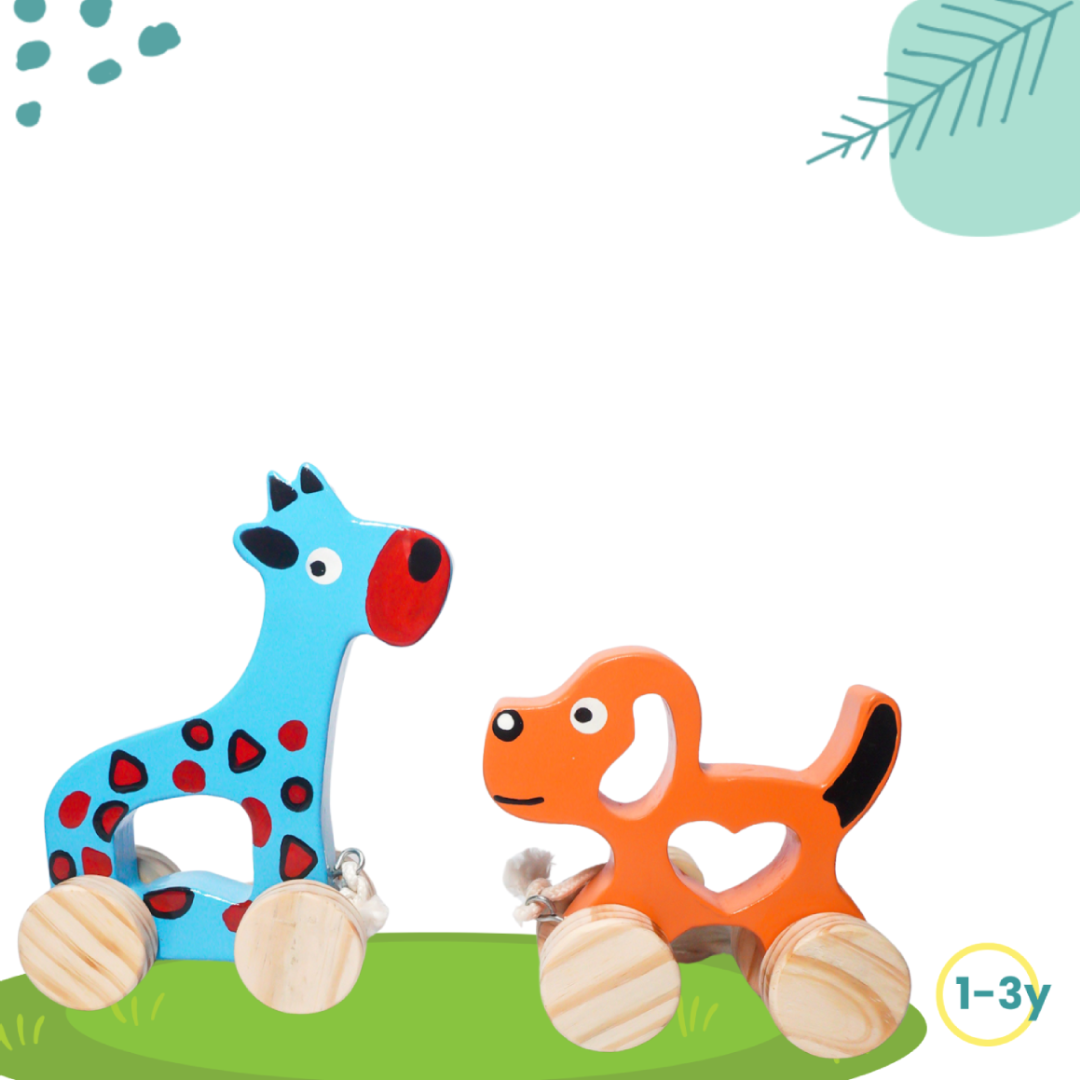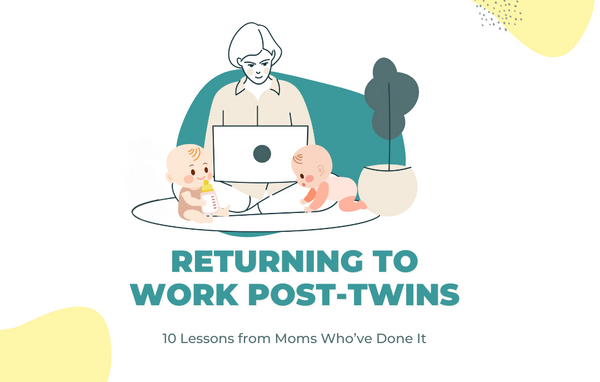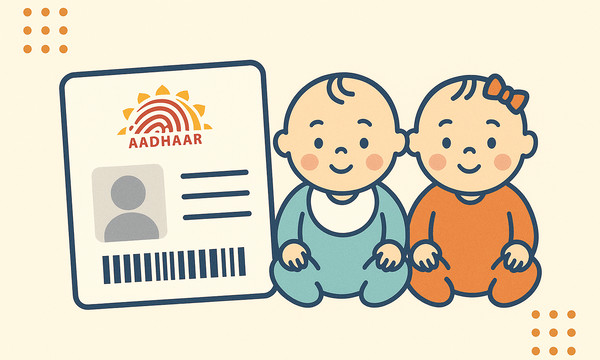
In the first part of this series, we threw light on what makes it difficult for kids to share. What are the developmental and psychological factors that need to be understood by the parents to unlock the mystery of ‘why kids don’t share easily!” and take a chill pill. Our kids are not mean, they are just not developed enough! 😊
In this article we are exploring some tips and tricks that we can use to encourage sharing and managing the interpersonal dynamics between twins and between kids in general:
In This Article
Be right there on the floor with them
Gentle & consistent messaging
For almost everything, including sharing, we need to be like that drop of water that keeps falling on a stone until there is a dent in it.
Keep nudging the kids to share, to consider each other’s feelings, to not hurt others and be kind in words and actions, to make space for others etc. every time you catch them behaving otherwise.
Yes, it requires a lot of patience. It is the key ingredient of the whole experience of raising kids, isn’t it! Slow and steady wins the race here.
Give them the message with love so they don’t feel judged and ridiculed. Keep reminding it, keep using those words and eventually it will stick to their sub conscious.
Don’t force the issue & teach healthy ownership
Sometimes when the tussle keeps brewing even after a lot of nudging, try and find a way around it or let it be. Sometimes we are also adamant about things and we wish that others in our life try and understand us instead of judging us and forcing us to change.
Kids can become very possessive about some things or people sometimes and then its extra hard for them to share. We need to accept those situations and let them know that while it’s a wonderful thing to share, sometimes it is okay if you don’t want to share something. It is okay, not a big deal, no judgements here! We can try and find something else that makes the other child happy, excited or engaged.
If we push an agenda too much, any agenda, the pressure that gets created can make the child averse to that thing. They may end up behaving even more irrationally or in the opposite way from what we want them to do. All of this actually is a call to be accepted as they are!
Allow your child to have special possessions that they don't have to share, like a favorite stuffed animal. At the same time, teach them to respect others' belongings by asking for permission.
Help them articulate their feelings & leverage communication
Little children feel a lot but can’t express it. They are good at reading facial expressions, but not at naming the feelings they see. We can help them give words to their emotions by asking questions “Are you afraid you won’t get a turn?” or “Are you worried you won’t get your toy back?” or “You felt bad that she took the toy without asking you?” or “It’s very difficult to wait for this long, isn’t it?”.
This helps a toddler recognize their own feelings and it also makes them feel that someone else understands them. Over time this will enable them to articulate their emotions better as well as recognize and respond to other’s emotions as well.
We can also help them identify emotions by reading books. You might ask, “Why does this lion look sad here?” or “See, this girl looks so excited here!”.
Once they are big enough to use words and sentences to express themselves, we can teach our children to use words to negotiate and solve problems. Encourage phrases like "Can I have a turn?" or "I'm not done with this yet", “Can you please give this to me after you are done playing with this?” This helps discourage snatching and promotes communication skills.
Make it more concrete
Sharing is pretty abstract for toddlers. You can simplify it for them. They can understand it easily as ‘You have to give this thing to this person for a few minutes’ or “She will play with it first and then you will play with it”. Talk more about the process of waiting and taking turns.
We have used the concept of counting numbers (up to 10/ 20) or keeping time (5-10 mins or so) to quantify the time in which the turn will change or an activity will change. Even though they could not count when they were small and can’t see time right now, still, they seem to understand the concept of “a duration of time”. As they grew, while watching TV, both wanted to see different shows, so we made a rule that whenever you sit to watch TV, each child will choose 1 episode from any show that they want to see and after both have seen total two episodes, TV will be switched off. They accepted this rule and it has worked very well for us to manage their conflict and also the duration of screen time.
Simply distract!
Distraction is one of best tools that you can have in your arsenal. Little kids are quite easy to distract. It was very interesting to observe through the journey of raising kids that adults thrive on logic and use logic while talking to kids also, whereas kids are all heart, they don’t understand logic. The lesson was learnt after many years of frustration of trying to explain how to share & why to share logically, tiring my vocal cords only to end up listening to their screams and shrill cries.
They just want what they want and want to have fun and they certainly don’t want your logic. 😉
If you see your kids inching towards a fight, or if you are not able to resolve their sharing situation, simply distract them with a story, with another toy, or another activity or with a question. Until they are around 4 or so, it will be quite easy to distract them with some other flight of fancy. And many times, by then, the other child also moves on from the thing that caused the problem in the first place.
However, creating distractions is an art in itself. When you are stuck in the middle of two squabbling kids, creative thinking is a little hard to come by. It takes either natural talent or some years of experience to quickly get ideas on how to distract the child. My husband is a natural at it and it has been a huge boon for us, whereas I have really struggled with it.
Storytelling
Storytelling is yet another Brahmastra that you can use to teach kids the merits of sharing in a fun way and also to manage their dynamics. Find and read books on sharing, playing with others, learning about emotions and kindness. You can also make a story on your own about almost anything in the world.
My husband has used role play to distract them or to get them to do the right thing in situations. He has instantly turned into characters like a robot or a mythical creature, or an animal, or an old aunty to sweep the kids into some other story world and or to request them to be good kids. Funnily, kids listen to make believe characters more than they would listen to the ‘You’ who is being a parent.
Children love stories and I cannot emphasize it enough!
Talk about playdates ahead of time
Let children know if other children are coming over for a playdate. You can put their special possessions away and ask your child to identify items they would be comfortable sharing.
Preparing kids in advance for an event helps in setting their expectations and managing their emotions to a certain extent.
During playdates, encourage and appreciate cooperative play, such as taking turns on the slide. Children often learn the value of sharing when they realize it makes play more enjoyable and pleasant.
Plan activities for two
Arrange toys, activities, materials in such a way that all the kids have enough to play with. A bucket of dinky cars, a sandbox with lots of shovels or a mound of playdough means there’s enough for both players.
After a few trials and error, we always bought toys that are multi-player games like blocks, play doh, slime, magna tiles, other small games of sorting or sticking that 2 children can engage with. If there were toys that we felt would lead to sharing issues, we did get 2 sets of it to make sure that at least they have a good experience while playing with it, like kitchen sets, puzzles, activity books, paints etc.
Role modelling
Be a good role model for your kids. You might have heard this many times that kids learn more from observation than from instructions. “Sharing is about more than possessions,” says psychologist Kim O’Connor. “If we parents share our time and things happily and generously our kids will learn to do it too.”
Recognize & appreciate good behavior
One of the very simple concepts of psychology and energy is – ‘What you focus on, expands!’
It applied to all aspects of life. Hence with kids also, when you focus on certain qualities, behaviors, values with honest intentions, those aspects receive energy and enhance. It might take time, but mostly those qualities will get absorbed within kids one way or another.
When we appreciate them for sharing, for caring, for actually practicing good behavior that we have been teaching them, we are giving the necessary manure to nurture the seeds that we have been sowing. Nurturing the seed is as important as sowing it.
Avoid comparisons and foster companionship
In order to get things done quickly, or to leverage the dynamic of twins in some way for our benefit, we can tend to make the kids compete – to finish food faster, or complete home work faster, or to be a more well-behaved child, or to perform better in some activity etc.
We can also tend to compare them lot more since practically everything they have gone through is almost exactly same. However, this might backfire when it comes to encouraging sharing. When kids start to see each other as competitors, sharing can become more difficult.
Since the time, Riya and Ruhee were very small, we kept repeating a few phrases like “We don’t want any competition in this house. You do the best you can”, “No comparisons and no teasing”, “We are a family and we need to take care of each other”, “Sharing is caring”, “Riya is different and Ruhee is different. Riya is good at some things and Ruhee is good at other things. Mumma and Baba are also different but we still love each other a lot.”
We keep trying to foster the message that each person is unique and beautiful in their own way and try our best to not say anything comparative in front of them.
While we encourage kids to share, we need to be mindful of their emotions and how that makes them feel. It’s important for parents to build a healthy sense of well-being, security, self-confidence & self-esteem in the kids all of which are pre-requisites for them to feel comfortable in sharing things with others. We need to resolve conflicts in a manner that conveys that even in sticky situations they will be heard, understood, accepted and best efforts will be made to accommodate their needs.
When my kids have a conflict and one of them is not sharing, or hitting or behaving badly in the process, I try to resolve the issue in the following steps. I am not perfect at all but I thought I will share my modus operandi. 😊
- I talk to them and ask ‘Why are you not sharing?”, “When will you share or give this thing to her?”, “How can both of you get a chance or how do we solve this?” and try to find a win-win solution.
- If that doesn’t work, I try to engage one of them in some other activity.
- If that also doesn’t work, I try to nudge some more and remind the non-sharing twin that “You are such a wonderful girl! It would be so nice if you share this with your sister! She will love you so much”, or “If you don’t share, next time your sister will also not share with you! How will you feel about that?” or “We will not have a good time if we don’t play together. How can we play together with this?” etc.
- Sometimes it works and when it doesn’t, by this time one of them has a meltdown and I have a headache.
I try and keep the communication going to remind them of what would be the right thing to do or to find a solution. But if anyone behaves badly in the middle of all this (screaming, hitting) I can end up shouting as well to tell them to stop doing it. However, I continue sitting with them until they calm down, I bring them close, hug & kiss them & tell them “That was not good, but I am here for you and I still love you. I hope you make a better choice next time.” I do feel that this hits them somewhere deep.
I try to bring my empathetic best! 😊
I sincerely hope that this helps them develop empathy which is truly the cornerstone of sharing and building positive relationships.
Managing and resolving twin’s conflicts around sharing while also making sure each child feels taken care of is the main piece of this puzzle. As I have said in my previous article, parenting is a great balancing act!
Parenting, especially when it involves twins, is a profound journey of self-discovery and personal growth. It provides a unique opportunity to cultivate qualities such as patience, empathy, resilience and adaptability. Amidst the chaos and meltdowns, we learn to stay calm and anchored, developing a deep understanding of our children's struggles while managing our own.
This journey can be likened to nurturing a lotus in the mud. It's a process that requires commitment and perseverance, with the promise of love and radiance blossoming in return. The journey is indeed messy and demanding, but the rewards of seeing your children grow and flourish are immeasurable.
It is also important to remember that each child is a unique individual. Some children may naturally share, while others may require more time and understanding.
To encapsulate the essence of sharing, here's a beloved quote from Dr. Seuss: "The more that you share, the more things you'll have." This wisdom not only applies to material possessions but also extends to the joy and beauty of experiences and relationships that sharing can bring.



